Neslihan Önder Özen, Alistair Adam Hernández
November 5, 2025
As part of the German Delegation, Alistair Adam Hernández and Neslihan Önder Özen from LDnet participated in the 6th European Rural Parliament and served as co-moderators of two workshops on rural movements alongside Tobias Federwisch from the Village Movement Brandenburg. The reflections below draw on our experiences and observations throughout the event, both as facilitators and as active participants in the wider discussions and exchanges that shaped the Parliament.
The 6th European Rural Parliament (ERP), held in Inverurie, Scotland, from 20-23 October 2025, brought together over 400 delegates from 40+ countries to shape emerging rural practice and policy across Europe. Organised by the European LEADER Association (ELARD), European Rural Community Alliance (ERCA), Partnership for Rural Europe (PREPARE), and Rural Youth Europe, the Parliament embodied its theme “Rural Community Solutions to Global Challenges” through 30 workshops, 11 study trips, and various summits addressing everything from demographic change to climate resilience, from democratic innovation to food systems transformation as well as region specific sessions with the Balkans, Eastern Neighbours, and Northern Peripheries of Europe.
“The ERP represents a unique democratic process designed to amplify the voices of rural communities, discuss locally driven solutions, and contribute to shaping rural policies across Europe.”
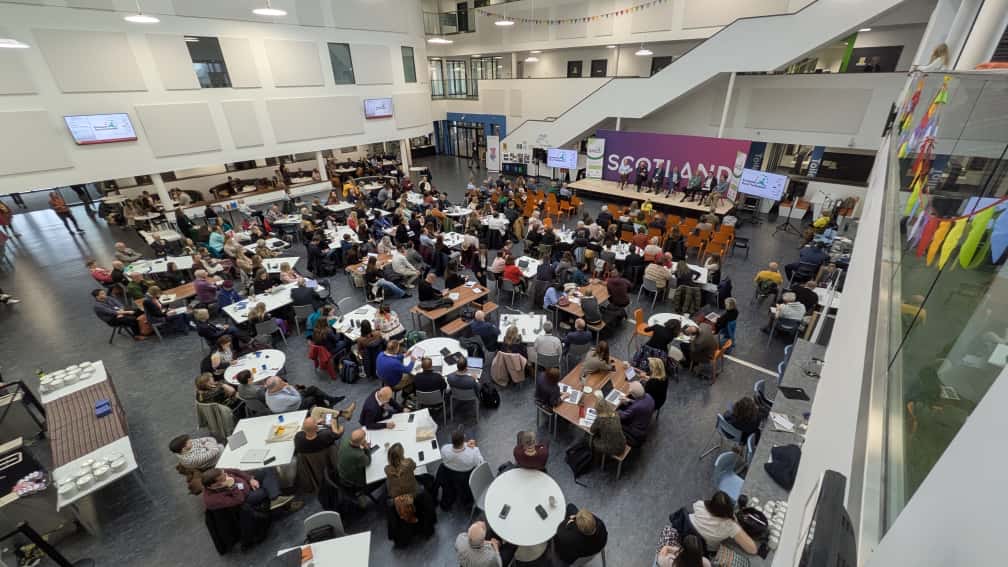
The Parliament in motion
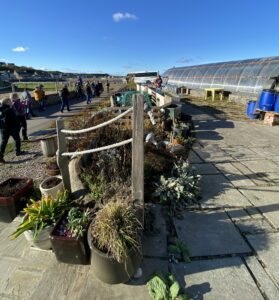
Study trips on Wednesday took delegates to community-led tourism initiatives, renewable energy projects, and land management demonstrations across North East Scotland, showcasing how rural communities are pioneering solutions to challenges and act as laboratories of innovation addressing mobility, demographic change, climate change, health and land management.
As co-moderators of two workshops on rural movements, we explored how communities across, Europe from Finland to Albania, Germany to Estonia, are mobilising to reclaim agency in the face of centralisation and rural decline. A striking pattern emerged: rural movements are often ‘united in motivation’ against the absence of what they lack, be they infrastructure, services, or political representation. They thrive around bottom-up approaches by preserving grassroots authenticity while building long-standing advocacy capacity. The infographic, which we created by distilling the main ideas from the session report, summarises the workshop’s key insights. More information can be found in our Instagram post.
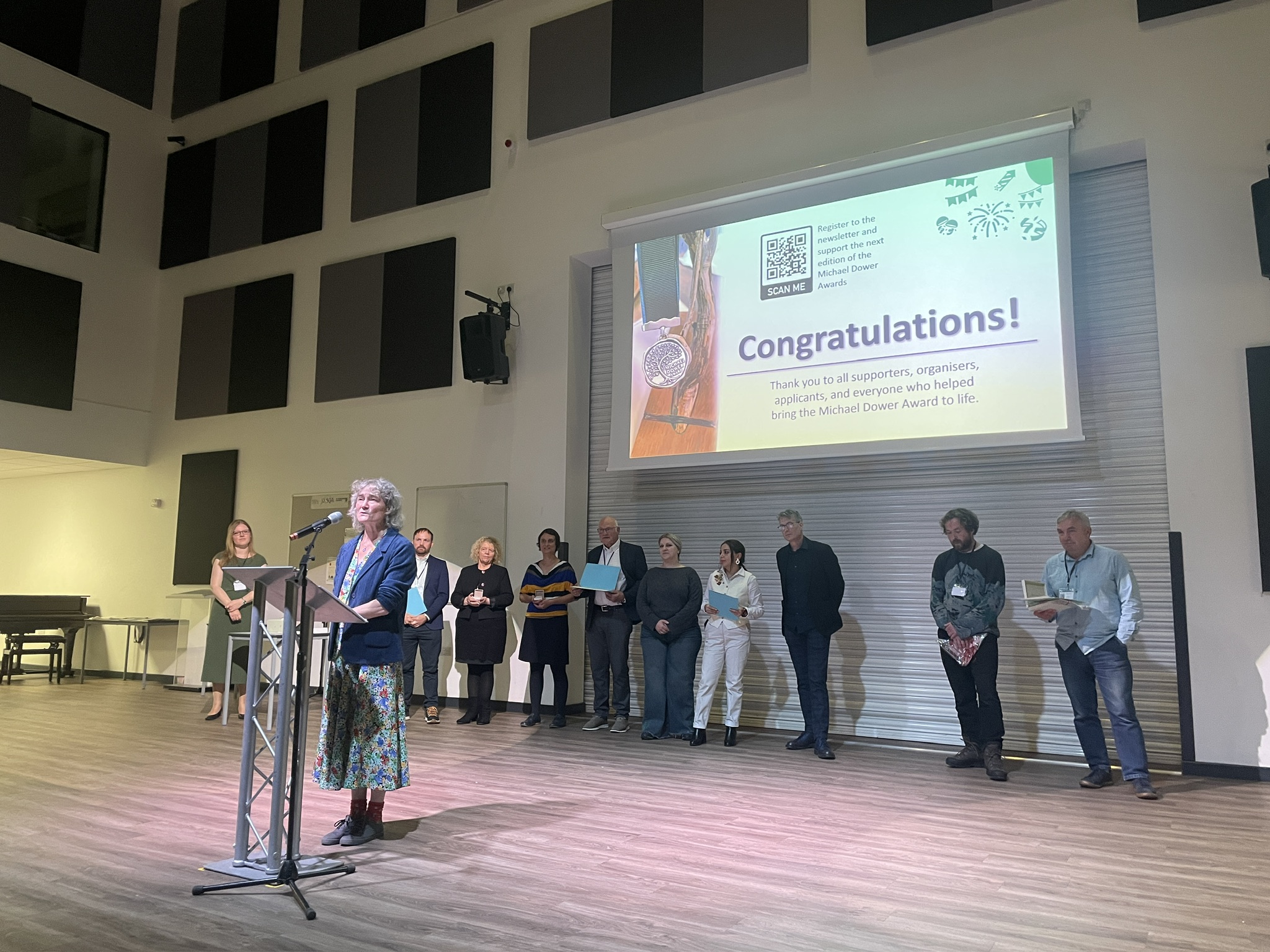
Unlike previous editions, this year’s Parliament reached one of its most emotional moments during the presentation of the Michael Dower Award for Rural Resilience, honouring the lifelong dedication of the late Michael Dower to rural Europe. The Individual Category went to Vasilis Kostakis (Greece) for his pioneering work on cosmolocalism, open knowledge, and participatory rural innovation — empowering communities to build resilience from the ground up (read more). The Community Category was awarded to the Knoydart Community (Scotland), recognised for over 25 years of leadership in community-led land ownership, renewable energy, and environmental stewardship (read more).
Voices and moments from the Parliament
The European Rural Youth Parliament, running parallel on Tuesday, offered both inspiration and warning. Young delegates articulated sophisticated visions for rural futures but emphasised their need to be treated as equal partners in policymaking. As one youth panellist cautioned during the evening session moderated by Cabinet Secretary Mairi Gougeon MSP, if policymakers fail to genuinely listen, today’s youth enthusiasm risks becoming tomorrow’s frustration. Their message was clear: rural youth are ready to lead, but only if genuine space at decision-making tables is given.
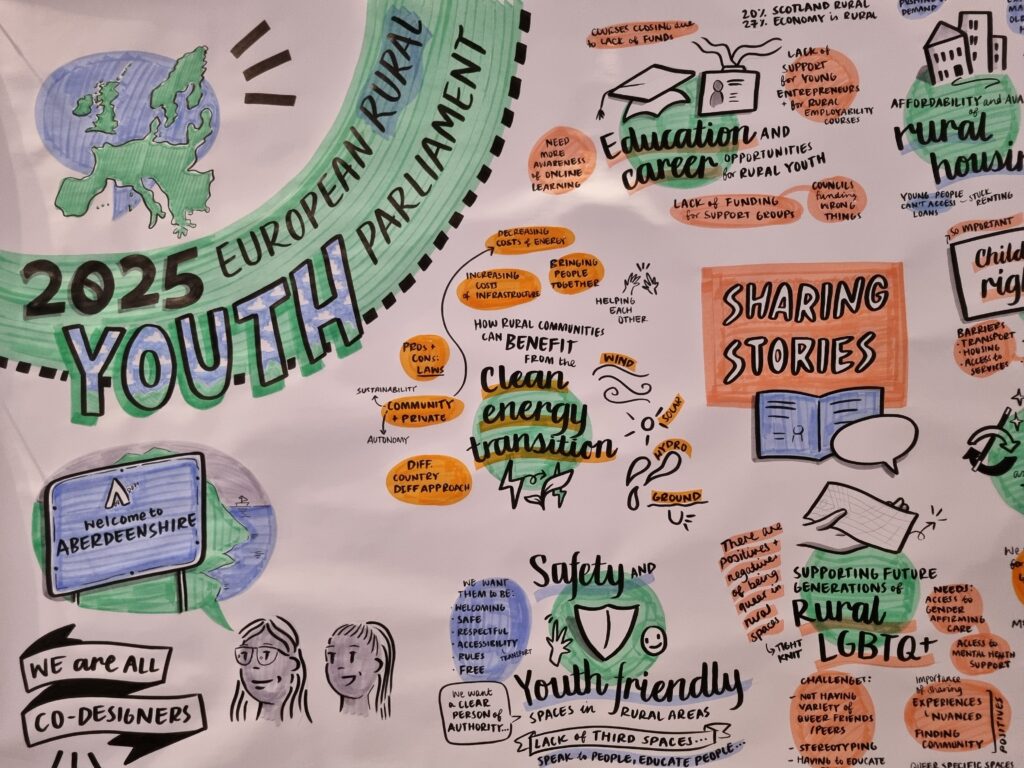
Beyond formal sessions, the Parliament’s power manifested in informal spaces too. Coffee breaks and study trip conversations generated crucial insights about the future of rural policymaking. One observation was bittersweet: while ERP, grounded in massive volunteer effort, can generate extraordinary energy and demonstrate the vibrancy of rural communities, policymaker presence appeared notably thinner than in previous years. This disconnect raises fundamental questions about how the sophisticated knowledge being generated in rural communities translates (or fails to translate) into policy action.
The Parliament culminated in the Declaration of Inverurie, which will feed into the EU Rural Pact and Long-Term Vision for Rural Areas, influencing policy through EU institutions, the European Economic and Social Committee, and national governments both within and beyond the European Union.
Yet the ERP’s true legacy may lie in what cannot be codified in declarations: the synergy built across 43 countries, the knowledge exchanged, and the collective resolve echoed throughout the event: “All of rural Europe (within and beyond) shall live”.
Outlined below are three core demands that capture the central messages of the 2025 European Rural Parliament.
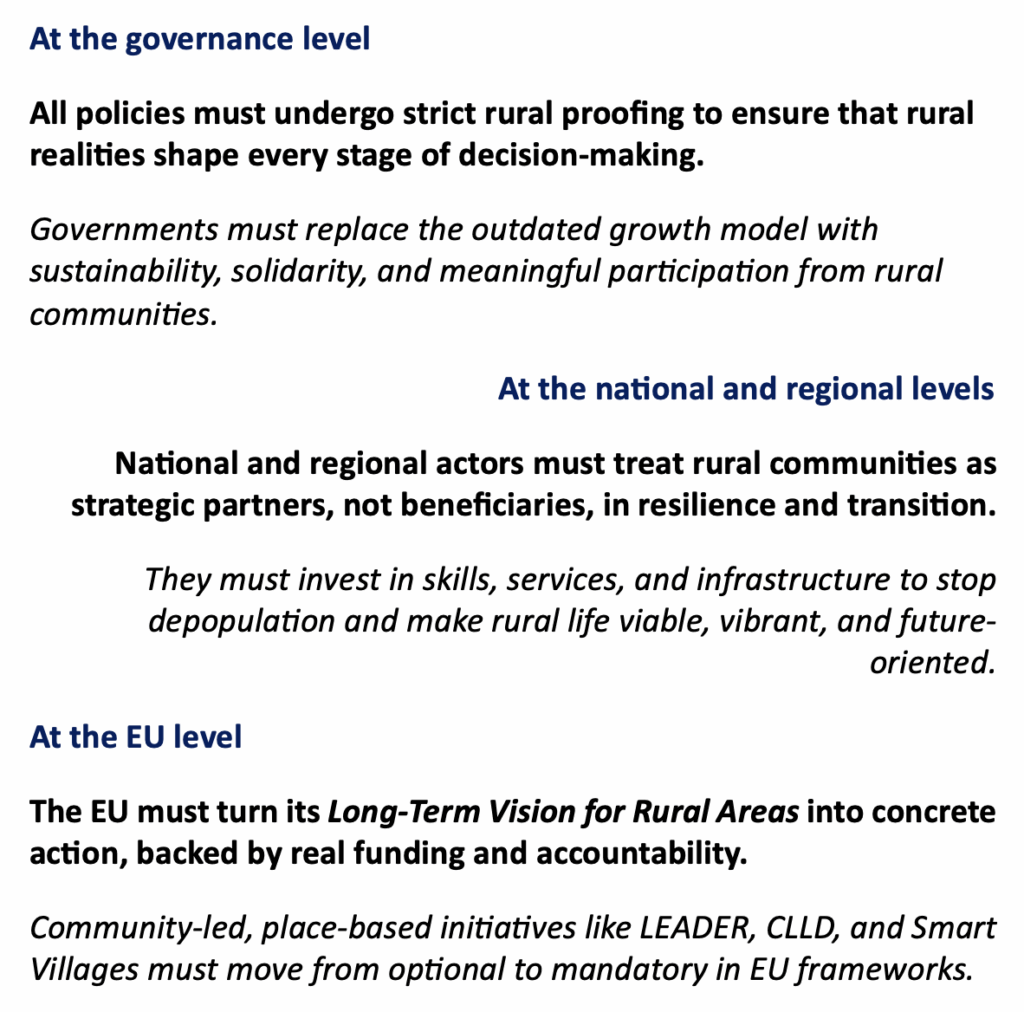
Leave a Reply
You must be logged in to post a comment.